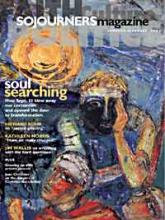Since the news of Washington, D.C.-based activist Lisa Sullivans death last October, she has been eulogized as a mentor, organizer, institution builder, applied intellectual, and servant leader. But the quality that stands out for me now as I reflect on our collective loss of this sister, so committed to freedom struggles, was her keen political savvyher genius, really; what Lisa called "reading the tea leaves."
The story of how Sullivan, as an unknown graduate student and adviser to the local NAACP youth council, organized a coalition of teen-agers to help elect New Havens first black mayor is a defining moment in post-civil rights organizing tactics. By the time Lisa arrived in New Haven in 1983, the 1980 census had already identified young women, especially of color, as the citys fastest growing demographic. As a political scientist trained at Clark College and Yale, Lisa began crunching the numbers and quickly honed in on the citys new emerging power base.
"If you could engage this burgeoning youth population and get them involved in politics," Lisa recalled during a 1999 interview, "they could be your cutting edge." The coalition Lisa pulled together registered 5,000 new youth voters, delivering the election to John Daniels, who won by 4,000 votes. The day after the historic victory, the New Haven Register ran a front-page story naming Lisa as one of the citys up-and-coming power brokers.
Her political acumen and dynamic personality often positioned her to be the kind of leader whose charisma could carry a cause. But rather than seek the spotlight as a politico in New Havens democratic machine, Lisa remained true to her organizing roots and took the New Haven strategymobilizing poor urban youth to move a political agendato a national stage.
Read the Full Article
